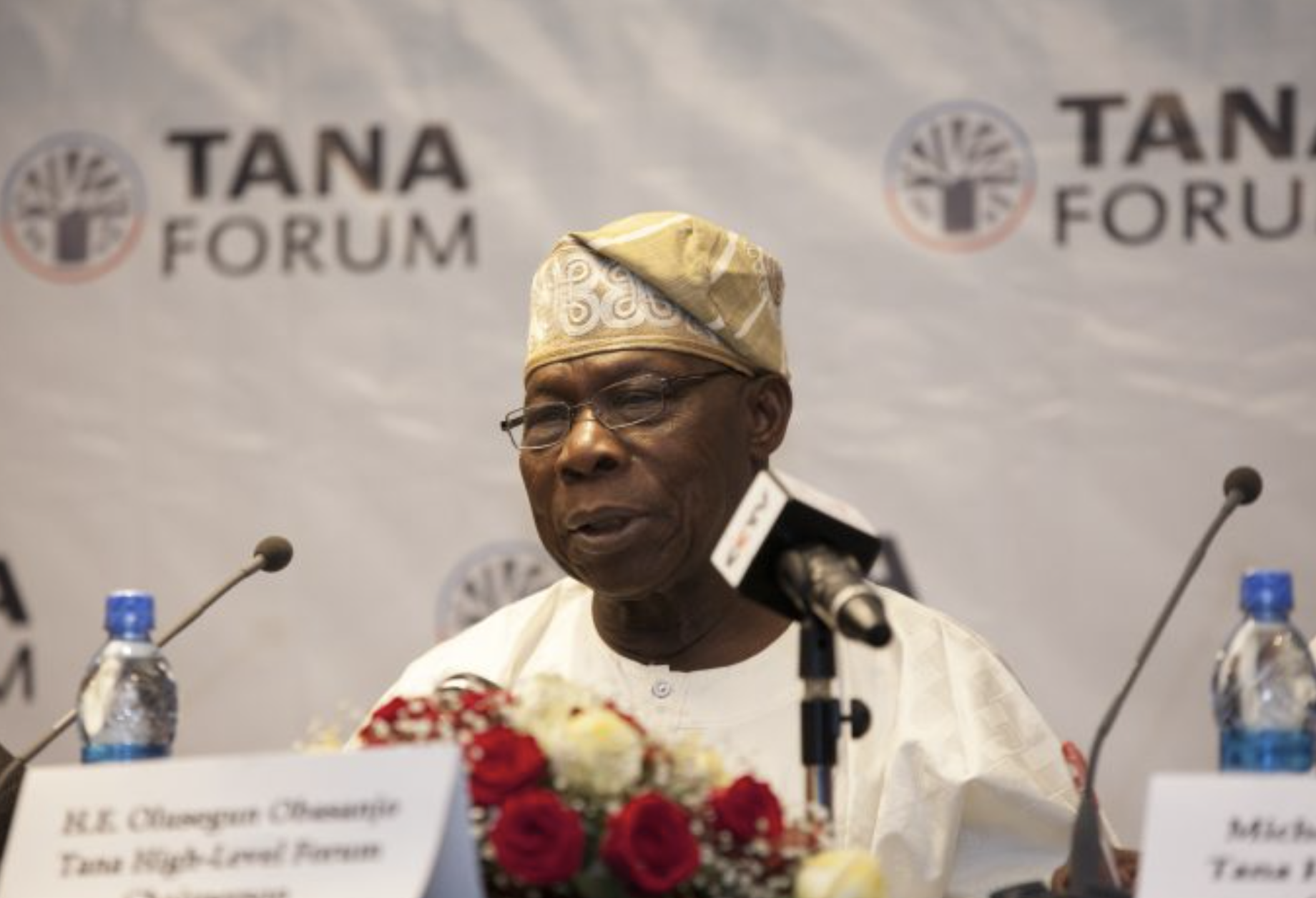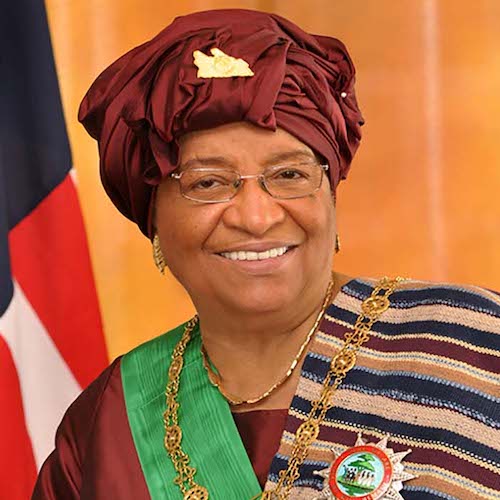News
Olusegun Obasanjo: A Man of Action in the Name of Peace
As fresh conflicts spring up around the African continent and African militaries once more taste political power, the time for peacemakers on the continent has never been more fraught. With news that former Nigeria President Olusegun Obasanjo is being considered as a Nobel peace prize nominee, Ellen Johnson Sirleaf, herself a Nobel laureate and former president of Liberia, writes about her counterpart's role in continental peacemaking and the lessons he brings to bear around the table ….

President Olusegun Obasanjo, ‘Baba’ to his admirers, is Africa’s man of peace. How he got to this role is unusual, since it was via a military background. But both these vocations share many skills, not least the ability to bring people together, to prioritise and organise, and to place the great good of society, of a country and of the continent of Africa ahead of short-term motives.
He is able to do this in his own life, but also to inspire others to take the same approach. As another great statesman, Colin Powell, put it, ‘Leadership is solving problems’.
There are very few statesmen that can be called on to intervene when conflicts appear incapable of resolution. Baba is the exception to this rule.
I have very direct experience of this in Liberia where President Obasanjo was able to bring his vision to bear. By offering one of the leading perpetrators of the war, Charles Taylor, exile in Nigeria, he conjured a way of ending a conflict which devastated my country, Liberia.
His critics said he should not have offered a warlord asylum, but I knew, and he knew that without this compromise, there would be no peace. He was prepared to weather than criticism because he knew the outcome would be to the benefit of the majority of Liberians.
History has proven him right. With Taylor in exile, Liberia was able to move forward and has now become a beacon of stable democracy in West Africa, with two peaceful changes of government at the polls since then. No-one would have imagined that possible just 20 years ago.
President Obasanjo’s ability to find a way when there seems to be none open, has helped him craft peace across the continent.
When the war in Ethiopia between the central government and the authorities in its Tigray region appeared set to continue indefinitely, becoming yet another attritional conflict that could have dragged on for decades, the African Union's Peace and Security Council (PSC) called on President Obasanjo to step in.
As AU Special Envoy, President Obasanjo brought seniority, experience and a cool, calm demeanour to bear on this conflict. His approach was to hear all sides, frequently travelling to the war zone to hear the Tigrayan point of view and consulting extensively with the government in Addis Ababa.
He has summarised his philosophy as follows: Everyone has to accept the ‘truth that there is ‘no victor, no vanquished’ if the possibility of peace, common security and shared prosperity, development and progress for all concerned is to be realised.’
It took time, courage and persistence to engineer a settlement and, when both sides had reached a military stalemate, President Obasanjo was able to bring the sides to an agreement to halt fighting.
The Pretoria Agreement of 2 November 2022 was formally facilitated by the African Union and signed by representatives of the Ethiopian government, TPLF and the Tigray people. This was followed by an agreement, concluded a week later in Nairobi, between the military commanders on the modalities of the ceasefire agreement.
President Obasanjo’s ability to make such peace deals possible is built on the fact that he is a military man and had fought in Nigeria’s Biafran civil war, leading the government forces. When the war broke out in 1967, Nigeria was led by General Yakubu Gowon, and Biafra by Lieutenant-Colonel Chukwuemeka ‘Emeka’ Odumegwu Ojukwu. While negotiations in January 1967 between Emeka and Gowon had produced the Aburi Accord, signed in Ghana, by which a new federal arrangement would have been implemented, this was stillborn. On 30 May 1967, Emeka declared Eastern Nigeria a sovereign state as the Republic of Biafra and, on 6 July 1967, Gowon declared war and attacked Biafra.
Nigeria’s civil war cost an estimated 100,000 overall military casualties, while the human-caused famine resulted in perhaps as many as two million civilians dying of starvation, the scale of devastation making Biafra synonymous with humanitarian calamity. Like America’s War in Vietnam, the Biafran War was one of the first to be televised to a global audience.
Baba learned bitter lessons from this conflict. ‘Our first mistake was not to accept the Aburi Accord. If this had been accepted, we would not have gone to war. It would have given up a federation not as tight as we have now, but a looser version, but it would have avoided war.’
When the war broke out, the former president maintained, ‘We were not strong enough, and the coordination of the war effort was poor’. And, at the end of the war, ‘we did not put the lessons of peace- and nation-building into action. We did not attempt to buy inclusiveness, with the result that this is still a part of the political problem today.’
Being able to speak from his experience on the front line of a devastating conflict of lessons learned gives him the authority to press conflicting parties to seek peace in a way in which few other leaders can. He speaks of several key aspects to facilitate peace.
The first is the imperative for ‘even-handedness’ on the part of an outside mediator, not only in terms of what you do ‘but what you are seen to do’.

There is, secondly, a need ‘to know both the remote and the immediate causes’ of conflict, which means ‘you have to understand the history’. He says that ‘you can’t just deal with the immediate cause, since that can often be trumped by the remote’. This informed his recent efforts to quell the post-election distrust and violence in Kenya by forming a Committee of Ten comprising equally members of the political protagonists.
His third tip is to find the issues that can create momentum for the process, and build confidence, ‘so ramifying among the rest’ of the points of difference. In the case of Ethiopia, he recalls, by dealing with the issue of humanitarian access into Tigray and having the Tigrayans acknowledge the authority of the federal government on key issues, confidence grew. ‘Nothing succeeds like success’ he notes, even ‘small catalysts like carrying a message from Ethiopian prime minister Abiy to the president of Tigray Debretsion Gebremichael can create goodwill’.
Fourth there is a need to be ‘conscious of local spoilers, domestic, regional and international, even local’. While he was never, finally, that concerned about the presence of large numbers of cooks with many fingers in the pie, ‘there must be only one chief cook who will have the final say on matters.’
There is also the need to ensure that the conditions that give rise to conflict are dealt with at their root. Gender equity is a critical component, one which I am only too familiar with. He has been a strong supporter of the Ellen Johnson Sirleaf Center for Women and Development since its inception in March 2018.
Finally, President Obasanjo is alert to avoid the pitfall of nationalist pride. ‘Security for us in Africa means that we Africans must be in the forefront but we cannot do it alone.’
In the years that I have known him, from when we were in office to our efforts to improve economic growth and development on the continent as members of the board of organisations such as The Brenthurst Foundation, which he has long chaired, I have come to appreciate Baba as a man of peace.
More than that, he is a man who knows how to not only plant the seed of peace, but to nurture it and see it flourish.
Ellen Johnson Sirleaf is advisory board member of The Brenthurst Foundation and Olusegun Obasanjo is Advisory Board Member and Chairman Emeritus.
This article originally appeared on NewAfrican


